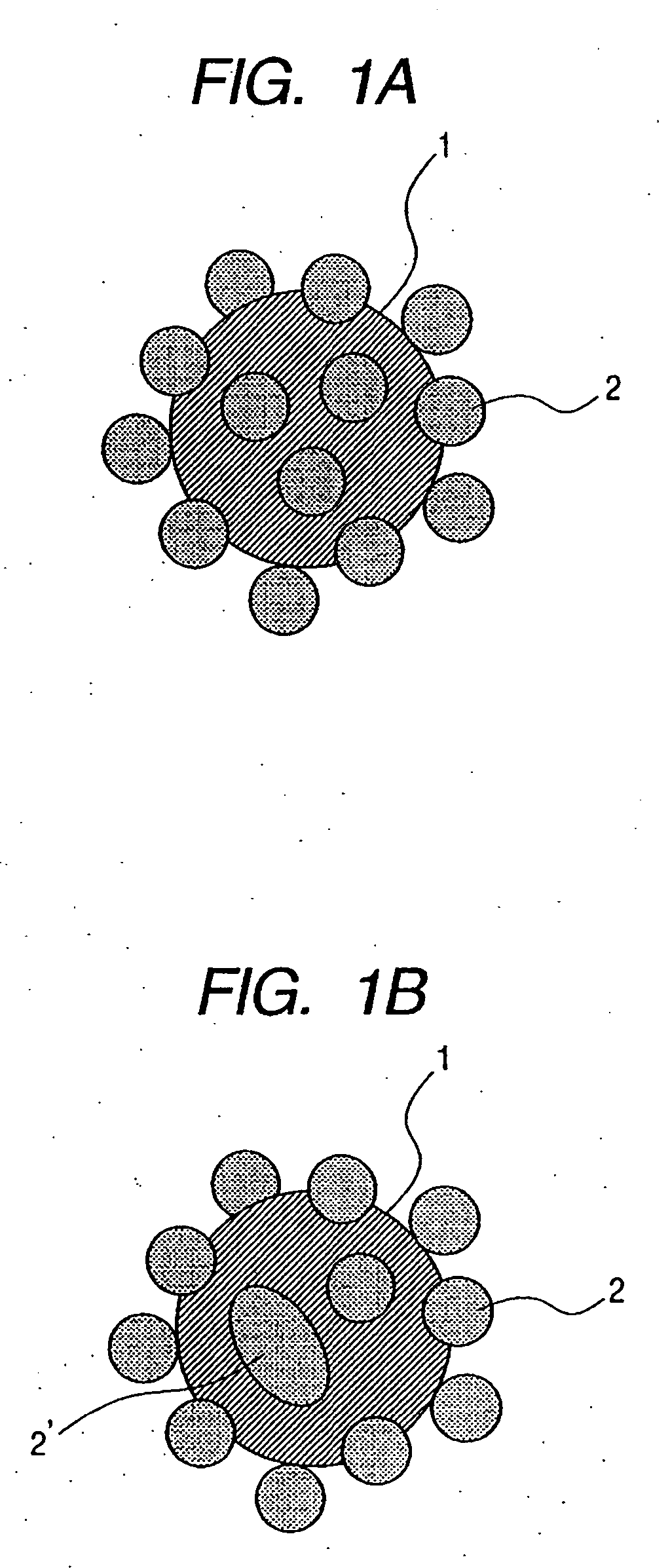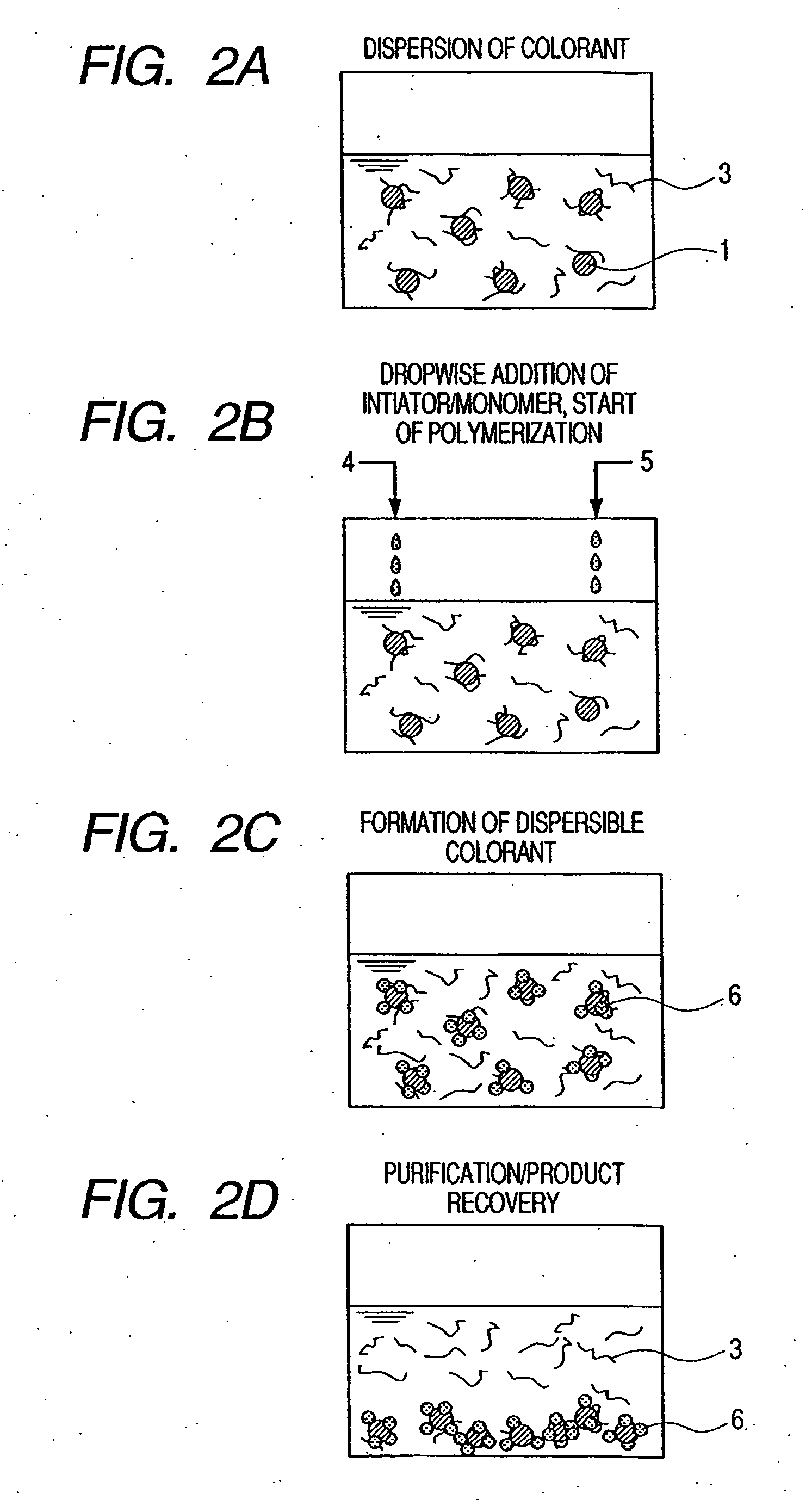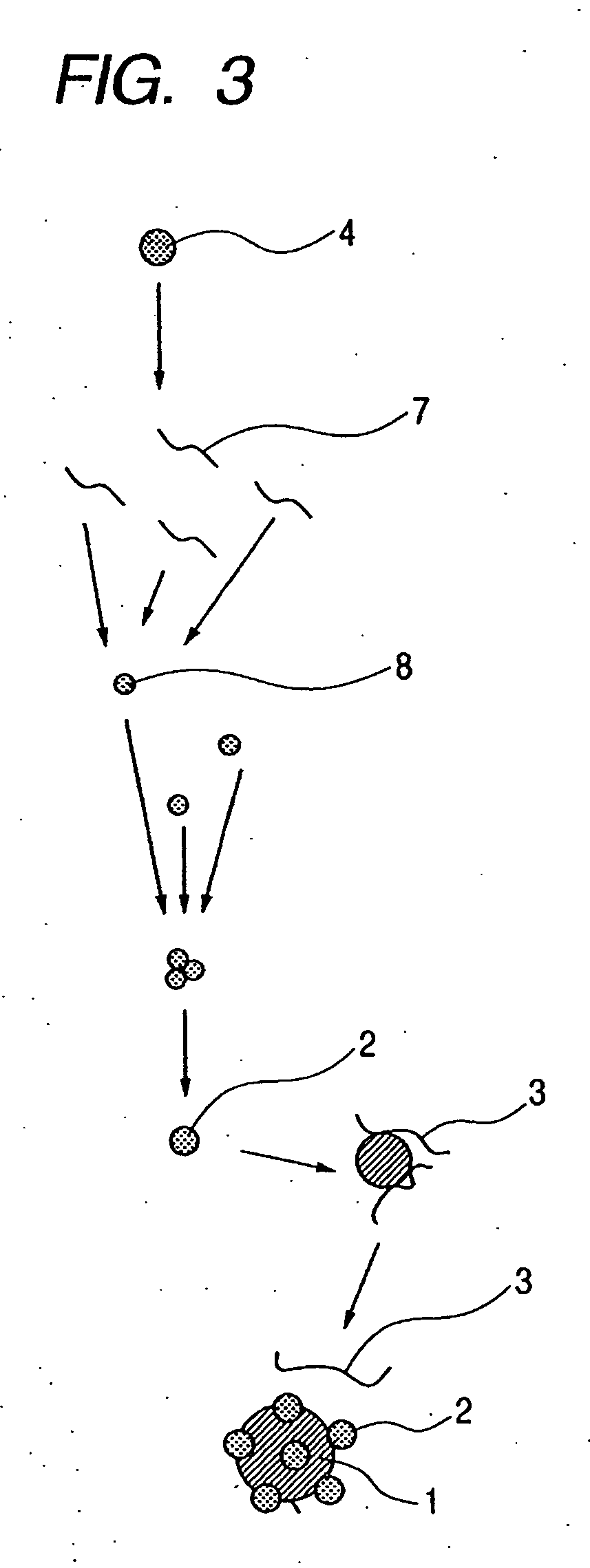Aqueous ink, ink tank, ink jet recording apparatus, ink jet recording method, and ink jet recorded image
- Summary
- Abstract
- Description
- Claims
- Application Information
AI Technical Summary
Benefits of technology
Problems solved by technology
Method used
Image
Examples
example 1-1
[0110] A recording ink 1-1 in accordance with Example 1-1 was prepared according to the following procedure. First, a mixed liquid composed of 10 parts of carbon black, 6 parts of glycerin, 10 parts of a styrene / acrylic acid type resin dispersant, and 74 parts of water was dispersed by means of a sand mill manufactured by KANEDA SCIENTIFIC CO., LTD. at 1,500 rpm for 5 hours to prepare a pigment dispersion liquid 1. Zirconia beads of a diameter of 0.6 mm were used in the sand mill, and accounted for 70% of the pot. The carbon black used in this example was Black Pearls 880 (trade name) (hereinafter, abbreviated as BP880) available from Cabot Corporation in the United States, and the styrene / acrylic acid type resin dispersant having a copolymerization ratio of 70:30, an Mw of 8,000, and an acid value of 170 was used. Such styrene / acrylic acid type resin dispersant was used by adding water and potassium hydroxide of a quantity equivalent to the above acid value and stirring the mixture...
example 1-2
[0115] While 100 parts of the pigment dispersion liquid 1-1 produced in Example 1-1 were heated to 70° C. under a nitrogen atmosphere and stirred by means of a motor, the following three liquids were charged into a titration apparatus and added dropwise to perform polymerization for 6 hours: (1) 4.5 parts of benzyl methacrylate and 1.2 parts of butyl acrylate, (2) 0.3 part of acrylic acid, 0.15 part of potassium hydroxide, and 20 parts of water, and (3) 0.05 part of potassium persulfate and 20 parts of water.
[0116] The resultant dispersion liquid was diluted to 10 times volume with water, and centrifuged at 5,000 rpm for 10 minutes to remove agglomerated components. After that, the remainder was additionally centrifuged at 12,500 rpm for 2 hours for purification, thereby resulting in a dispersible colorant 1-2 as a precipitate.
[0117] The recording ink 1-2 of this example was prepared by: mixing the following components in such a manner that the ink contained the dispersible colora...
example 1-3
[0118] A recording ink 1-3 in accordance with this example was prepared according to the following procedure. First, a mixed liquid of 10 parts of Pigment Red (PR) (manufactured by Ciba Specialty Chemicals; CROMOPHTAL MAZENTA DMQ (trade name)) as a colorant, 6 parts of glycerin, 10 parts of a styrene / acrylic acid type dispersant, and 74 parts of water was dispersed by means of a sand mill manufactured by KANEDA SCIENTIFIC CO., LTD. at 1,500 rpm for 5 hours to prepare a pigment dispersion liquid 5. Zirconia beads of a diameter of 0.6 mm were used in the sand mill, and accounted for 70% of the pot. The styrene-acrylic resin as a dispersant having a copolymerization ratio of 70:30, an Mw of 8,000, and an acid value of 170 was used. The obtained pigment dispersion liquid 1-3 was in a stably dispersed state with an average dispersion particle diameter of 88 nm and the polydispersity index was 0.13.
[0119] Next, while 100 parts of the pigment dispersion liquid 1-3 were heated to 70° C. un...
PUM
| Property | Measurement | Unit |
|---|---|---|
| Percent by mass | aaaaa | aaaaa |
| Percent by mass | aaaaa | aaaaa |
| Glass transition temperature | aaaaa | aaaaa |
Abstract
Description
Claims
Application Information
 Login to View More
Login to View More - R&D
- Intellectual Property
- Life Sciences
- Materials
- Tech Scout
- Unparalleled Data Quality
- Higher Quality Content
- 60% Fewer Hallucinations
Browse by: Latest US Patents, China's latest patents, Technical Efficacy Thesaurus, Application Domain, Technology Topic, Popular Technical Reports.
© 2025 PatSnap. All rights reserved.Legal|Privacy policy|Modern Slavery Act Transparency Statement|Sitemap|About US| Contact US: help@patsnap.com



